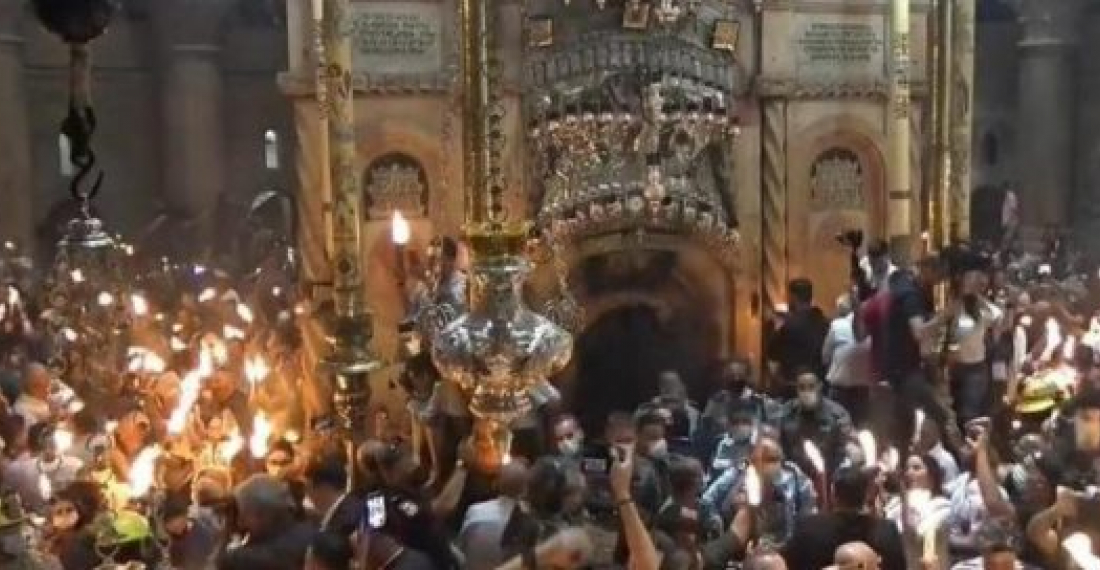Orthodox Christians all over the world on Sunday (2 May) celebrate Orthodox Easter, marking the moment of the raise of Jesus Christ after his crucifixion.
In an annual ceremony revered by Orthodox Christian communities all over the world as a key part of Easter celebrations, the “Holy Fire” appeared in the Church of the Holy Sepulchre in Jerusalem on May 1.
Orthodox Christians believe that the “Holy Fire” appears at Easter in the church as a result of a Divine intervention, and regard the event as miraculous.
Reports of miraculous flames are recorded in texts dating back to the fourth century, though the “Holy Fire” ritual became formalised later.
The event is not recognised by the Roman Catholic Church, with a Pope several centuries ago having dismissed it as a fraud. The world’s second-largest group of Christians, Protestants, also do not recognise it as legitimate. But for Orthodox it remains an important expression of their faith.
As part of measures against Covid-19, State of Israel authorities did not allow delegations from foreign Orthodox churches to come to the Church of the Holy Sepulchre to receive the flame.
All those in attendance for the ceremony had to have certificates proving that they had received both doses of vaccines against Covid-19 and a negative test dating from 24 hours within their arrival in Israel. Flights took torches with flames of the holy fir to Orthodox countries, such as Georgia and Bulgaria throughout the night.






